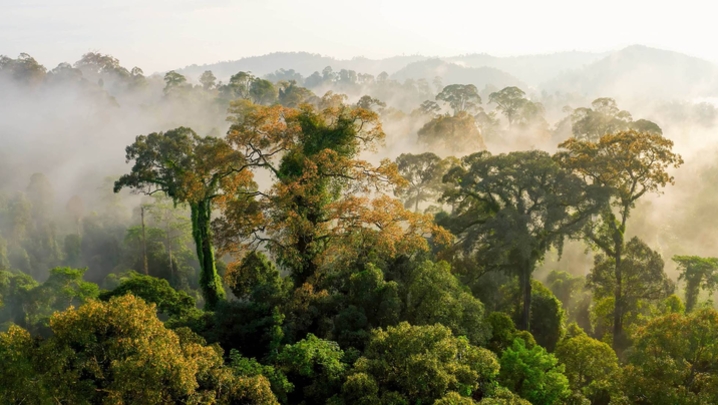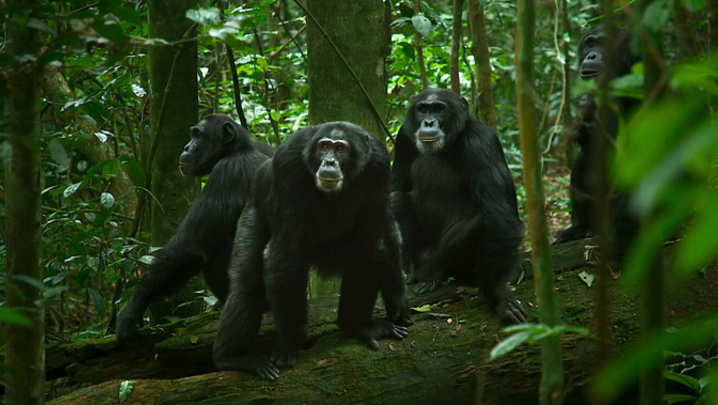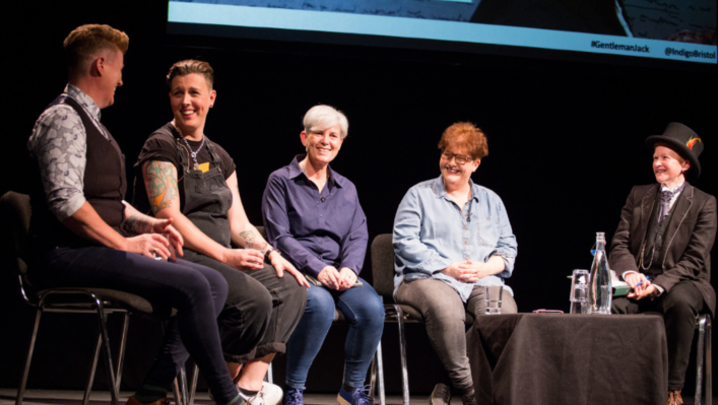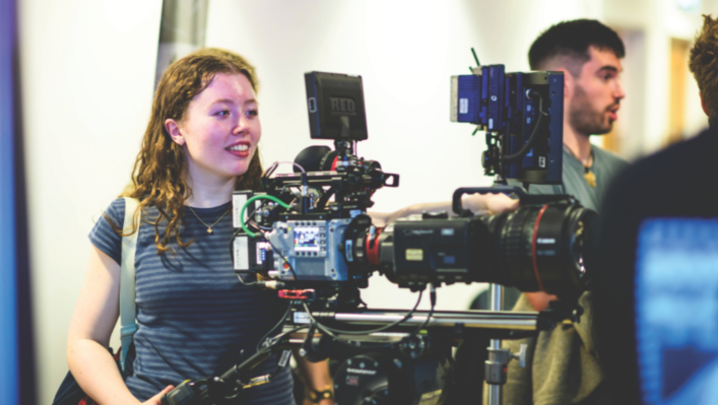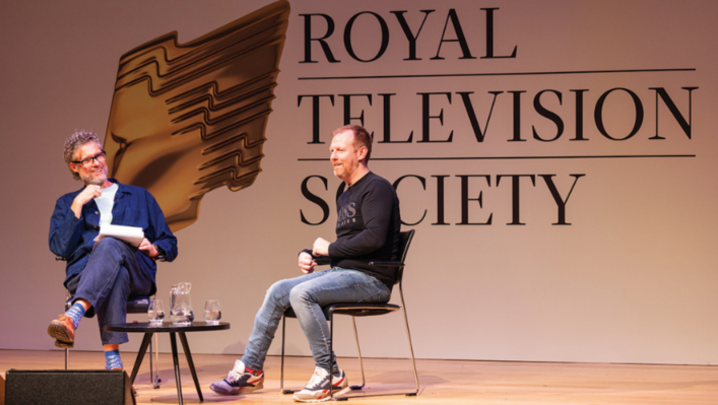The sixth RTS West of England Futures Festival – aimed at those wanting to find out more about the TV industry – was a lively event, with 20 companies and just under 200 young people attending.
Attendees at the November event, held at the M Shed in Bristol, had a chance to have a go on a remote edit crate, courtesy of Evolutions, and get their hands on some camera kit, thanks to Films at 59. Alongside the informal networking, there was also a series of short talks.
‘What to expect… working in post-production’ featured engineer Sam Stafford from Evolutions and grading assistant Sinead Cooper from Picture Shop, who discussed: their first impressions of post houses; the need to be inquisitive, positive and kind, to make connections and shadow people, and pursue the area that interests you.
In ‘What to expect…working in production’, Plimsoll Productions researcher Afua Owusu-Ansah and Hasna Hassan, production runner for The Lazarus Project, pulled no punches about the realities of fast-paced production, but really inspired the audience with their enthusiasm for their jobs.
Sas Bonser, BBC Studios Natural History Unit talent executive, divulged some excellent, practical advice in a CV workshop.
= A week later, BBC Studios Bristol hosted a joint ScreenSkills and RTS West of England event on disabled representation in TV. An interactive workshop led by Edi Smockum from training consultancy thinkBigger! outlined the state of disabled representation on- and off-screen, and highlighted how companies can do better.
Jack Maddox, a production co-ordinator at BBC Studios Natural History Unit, and Ethan Blake-Brooks, a shooting assistant producer at Drummer TV, shared their experiences of working in the TV industry as disabled off-screen talent. They discussed accessibility, the interviewing process and how they have benefited from the Access to Work scheme.


